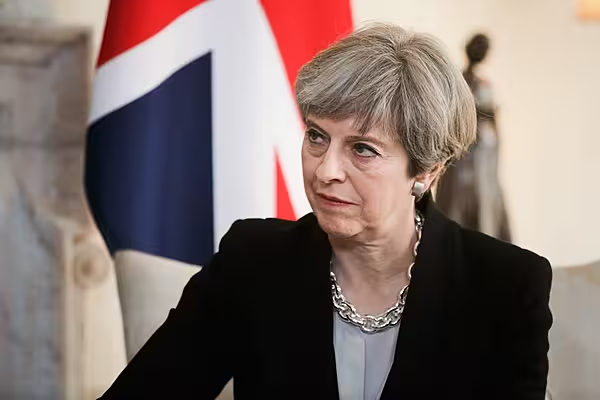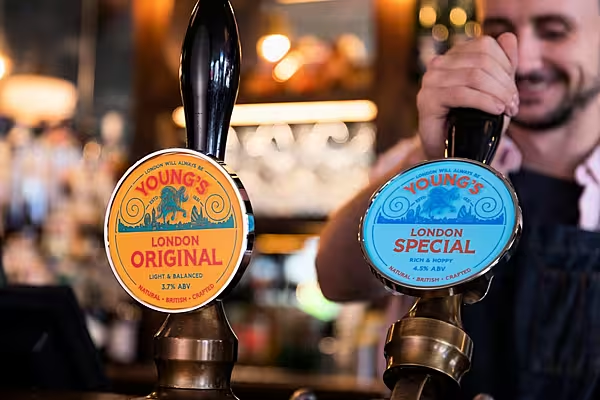Unilever Chief Executive Officer Paul Polman has a message for U.K. Prime Minister Theresa May as she offers companies an olive branch on Brexit: slow down.
The head of the British-Dutch consumer products giant, whose brands include U.K. household staples such as Marmite spread and Dove soap, said he’ll ask May to extend the transition period for the U.K.’s departure from the European Union. Polman is one of several senior business figures who have been invited to offer their views to May at a meeting at her official residence on Thursday.
“We will be talking about the possibility of a longer transition period,” Polman said on a call with reporters. “There is no doubt that the quicker we can get some of the initial issues out of the way -- like financial arrangements, citizens’ rights, the issue of Ireland -- the quicker we can focus on the trade side.”
Polman’s request for more time echoes calls from other U.K. business leaders who have warned of the danger of leaving the bloc without transitional arrangements to smooth the way, especially if no trade deal is immediately struck. It sharpens a potential disagreement with some members of May’s government, including Trade Secretary Liam Fox, who have said Britain will be fine even if it leaves the EU with no agreement.
Fox has also said that any transition period should only last months, and May tends to prefer to call any such arrangements the “implementation” period. Chancellor of the Exchequer Philip Hammond, the most pro-business of May’s top team, has called for a transition of a couple of years.
Conciliatory Approach
Having spent her first 12 months in office attacking industries for overcharging customers and not paying staff enough, May is now trying a more conciliatory approach after a disastrous election result weakened her hand. Brexit talks in Brussels this week -- which yielded little and left many obstacles in place -- have been overshadowed by infighting in May’s cabinet.
One of those attending the Thursday talks, Stephen Martin of the Institute of Directors lobby group, said his members need much more information about her plans, especially on issues such as the U.K.’s post-Brexit immigration policy.
“While businesses are preparing for Brexit, most have not made any concrete changes yet, so there is still a window of opportunity for the government to convince them to hold off triggering contingency plans,” Martin said in an emailed statement.
Negotiations
The U.K., which EU negotiating chief Michel Barnier says has failed to provide enough clarity on its positions, must reach a deal by 2019 or risk crashing out of the bloc, leading to tariffs and the potential flight of businesses.
Other attendees at the meeting, which will take place where the cabinet usually meets, will include Hammond, Business Secretary Greg Clark and junior Brexit minister Robin Walker, along with Ralf Speth from Jaguar Land Rover, Tesco Plc’s Dave Lewis and Prudential Plc’s Paul Manduca. Different groups of businesses will be invited to discuss Brexit every couple of months.
Ahead of the meeting, international broadcasters also threatened to move operations as early as next spring if they don’t get more clarity. Broadcasters face similar issues to global banks as they use U.K. licenses to transmit into the EU.
“Companies need certainty sooner rather than later,” said Adam Minns, executive director of COBA, a lobby group representing Discovery Communications Inc., 21st Century Fox Inc. and The Walt Disney Company in the U.K. “No one running a business of any scale can wait to the end of negotiations before deciding what to do.”
Disaster Warning
May’s meeting comes as academics warned that leaving the EU with no deal would lead to “economic disaster” and legal limbo. It might render U.K. nuclear plants unable to operate and British airlines unable to fly to and from the continent, the U.K. in A Changing Europe research program said Thursday in a study. It also found that Britons residing in the EU and citizens from the bloc in the U.K. would be left with no clear legal status.
“A chaotic Brexit would, at least in the short term, spawn a political mess, a legal morass and an economic disaster,” said Anand Menon, the group’s director. “‘No deal’ is an outcome the British government must strive to avoid.”
Dire warnings from business and economists contrast with the views of Fox and others in May’s government.
“We don’t want to have no deal, it’s much better that we have a deal,” the trade secretary told BBC Radio. “We can of course survive with no deal and we have to go into a negotiation with those on the other side knowing that’s what we think.”
News by Bloomberg, edited by ESM. Click subscribe to sign up to ESM: The European Supermarket Magazine.














